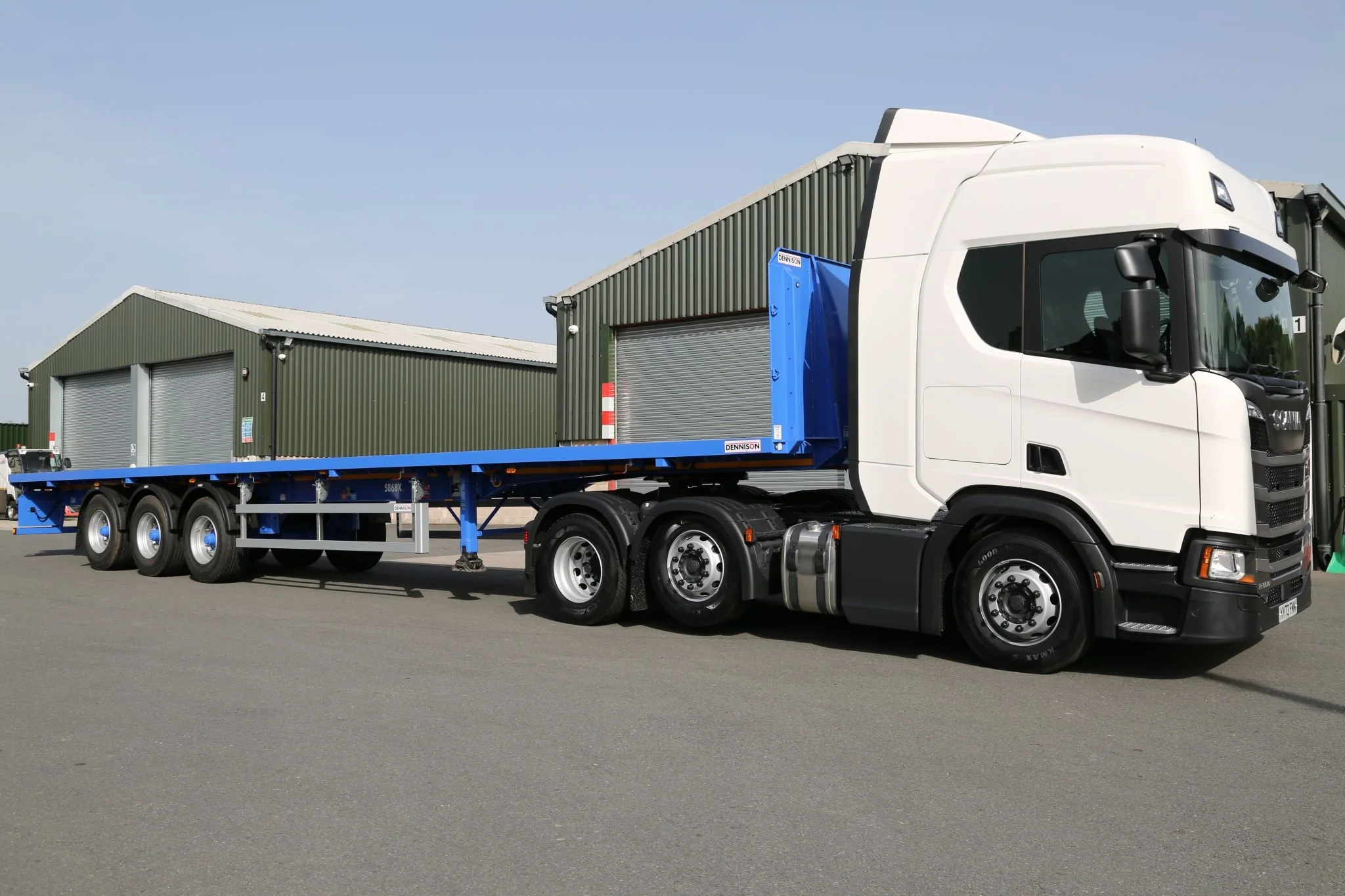Safely Loading Flatbeds at CCW Services, Southampton
Masters of the Open Deck: Safely Loading Flatbeds at CCW Services, Southampton
At CCW Services, our operations in Botley, Southampton, aren't just about warehousing goods; we're also a vital link in the distribution chain, often dispatching unique and oversized cargo across the UK on flatbed trailers.
Unlike curtain-siders or box trailers that offer inherent weather protection and side containment, flatbeds expose the load entirely, demanding an exceptional level of expertise in loading and securing cargo.
Loading and securing cargo on a flatbed is a critical process where safety, stability, and compliance are paramount, even before a single wheel is turned.
Here's how we ensure every flatbed load leaving our Southampton yard is ready for the rigours of the UK’s road network:
The Art of Load Placement: Weight Distribution is Key
Before any securing takes place, the initial placement of the cargo on the flatbed is crucial. Our experienced loading team meticulously plans this, considering:
Even Weight Distribution: Spreading the load evenly across the trailer axles prevents undue stress on the vehicle and ensures stable handling. Heavy items are typically placed over the axles, and we take care to avoid overloading any single point.
Centre of Gravity: Lowering the centre of gravity as much as possible enhances stability. Taller items are often positioned centrally or towards the front, where practical.
Balance: Ensuring the load is balanced side-to-side and front-to-back prevents dangerous swaying or tipping during transit.
The Secure Grip: Strapping for Stability
Once we have positioned the cargo, the extensive process of securing it begins. Strapping is the primary method, but it's far more than just throwing a few straps over the top:
Webbing Straps: We use high-tensile, industrial-grade polyester webbing straps, designed to withstand significant forces. Each strap has a rated lashing capacity (LC) and is chosen based on the weight and type of cargo.
Edge Protection: Crucially, we always use edge protectors (also known as corner protectors) under the straps wherever they make contact with the sharp edges of the cargo. The use of edge protectors prevents the straps from being cut or damaged by the load and distributes the pressure more evenly, preventing damage to the cargo itself.
Direct Lashing vs. Friction Lashing:
Direct Lashing: Straps are directly connected to lashing points on the trailer and the cargo, pulling it down and securing it in place. We tend to use direct lashing for very heavy or unusually shaped items.
Friction Lashing (Over-the-Top): The most common method of lashing. Straps are tensioned over the top of the load, pressing it down onto the trailer bed. The friction created between the load and the trailer deck, combined with the downward pressure of the straps, holds the cargo in place.
Tensioning: Straps are tensioned using ratchet mechanisms until they are taut, but not over-tensioned to the point of damaging the cargo. We ensure our team is trained in the correct tensioning techniques.
Minimum Number of Straps: Regulations and best practice dictate a minimum number of straps based on the weight and type of load. We always err on the side of caution, often exceeding minimum requirements for added security.
Protection from the Elements: Tarpaulins (Tarps)
For cargo sensitive to weather or requiring protection from road grime, tarpaulins (also known as tarps) are indispensable.
Waterproof Barrier: We meticulously lay heavy-duty, waterproof tarps over the secured cargo to ensure a waterproof barrier.
Full Coverage: We extend the tarp to cover all exposed surfaces of the load, often draped over the sides of the trailer.
Secure Tying: The edges of the tarp are then secured to the lashing points on the trailer using rope, bungee cords, or additional straps, ensuring it doesn't flap or come loose during transit, which could be dangerous and damaging.
Preventing Movement: Chocking and Blocking
Beyond strapping, we take additional measures to prevent the load from sliding or rolling:
Chocking: For items with wheels (e.g., vehicles, large machinery on castors), chocks are placed firmly against the wheels to prevent forward or backwards movement.
Blocking: Timber blocks or other suitable materials are strategically placed around the base of the cargo to prevent lateral movement (movement from side to side). We’ll often secure these blocks to the trailer bed or cargo itself.
Dunnage: Timber dunnage is often used beneath the load to provide a stable base, distribute weight evenly, and facilitate forklift access. This dunnage is also secured to prevent shifting.
The Driver's Final Check: The Last Line of Defence
Before any flatbed trailer departs our Botley yard, the driver performs a comprehensive pre-departure inspection – their final, critical safety check. Our driver’s check goes beyond the usual vehicle checks and specifically focuses on the load itself:
Visual Inspection: A thorough walk-around, visually inspecting every strap, tarp, chock, and block.
Strap Tension: A tension check of all straps, re-tensioning any that might have loosened slightly during the loading process.
Tarp Security: Ensuring the tarp is fully secured and won't flap or come loose, which can be a dangerous distraction for other road users.
Load Clearance: Checking for sufficient clearance from the ground, the cab, and any overhanging parts that could pose a risk.
Lights and Markings: Ensuring all trailer lights are operational and any required abnormal load markings (if applicable) are correctly displayed.
Overall Stability: Rocking the trailer gently (if safe to do so) to feel for any instability in the load.
At CCW Services, dispatching a flatbed trailer is a team effort that culminates in the driver's meticulous final check. It's our dedication to detail, combined with expert knowledge of loading techniques and safety regulations, that ensures our clients' valuable cargo reaches its destination safely and securely, no matter how unique or challenging the load.
Want to learn more about our comprehensive transport, haulage, storage, warehousing, devanning, rework, and pallet services in Southampton? Contact CCW Services today to discover how we can support your logistics needs across Southampton, the South Coast, and beyond.

